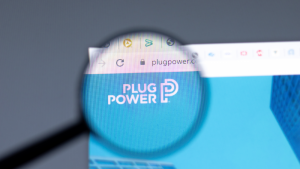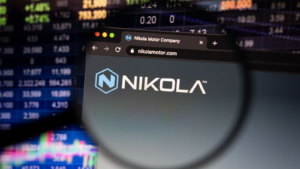The world is moving toward a greener future. Many countries are implementing policies such as net zero emissions targets or upcoming bans on the sale of gasoline-powered vehicles. The future is bright, as a whole, for renewable energy stocks.
But there are many firms in the space that will fail to capitalize on this societal shift. In fact, for these renewable energy stocks to dump, things look rather bleak.
These three renewable energy stocks with sell alerts have generated underwhelming track records and have poor outlooks going forward as well. While it makes sense to have exposure to promising hydrogen and lithium companies, these three renewable energy stocks to sell simply aren’t likely to be the ultimate winners in those fields.
Plug Power (PLUG)

There’s a reputation among certain renewable energy companies that they are more akin to science experiments than real commercially viable ventures. Plug Power (NASDAQ:PLUG) is a classic example.
PLUG stock has been publicly traded since the 1990s and has left a trail of devastated shareholders in its wake. Shares peaked at nearly $1,500 each back in 2000 on a split-adjusted basis and have fallen 99% since that point. Since Plug Power’s inception, the firm has racked up a jaw-dropping $3.3 billion accumulated deficit.
Hydrogen stocks are back in the news, which means that traders have given Plug Power a second look. But the situation hasn’t meaningfully improved. Last year, Plug Power generated a negative 28% gross margin. This means that for every dollar of revenues it generated, it cost the company $1.28 in materials to put those goods together. It’s exceptionally rare for companies to have negative gross margins.
Overall, Plug Power lost a stunning $658 million in operations last year on revenues of $701 million. The company seemingly has to virtually give away its products to build a client base. There will be winners from the hydrogen arena, but it likely won’t be firms with decades-old technology that have failed to generate meaningful commercial traction so far.
Nikola (NKLA)

Nikola (NASDAQ:NKLA) is a company focused on developing low-emission trucks. As such, investors primarily think of it as an electric vehicle play.
However, founder Trevor Milton also had a vision for Nikola creating an extensive renewable energy infrastructure based around hydrogen. While Milton left the firm following prior scandals, that hydrogen vision remains a key piece of the bull thesis.
To that point, on August 1, NKLA stock shot up as traders applauded a new $16.3 million grant to help build hydrogen refueling stations. That brings Nikola’s recent total grant haul to more than $58 million for the construction of hydrogen stations.
This is an incrementally positive development. However, it’s not big enough, and the same goes for Nikola’s vehicle operations. The company just signed an agreement to sell 13 vehicles, which is better than nothing, but hardly enough to prove significant commercial demand.
Be it selling a small number of vehicles or setting up a limited amount of hydrogen fueling stations, there’s little here that would suggest Nikola is a multi-billion dollar business. And yet, with the recent surge in NKLA stock, the market capitalization is up to almost $2 billion. That’s highly excessive given Nikola’s scandal-plagued history and limited track record thus far.
American Lithium (AMLI)

American Lithium (NASDAQ:AMLI) is an exploration-stage mining company. Originating in 1974, it was previously known as Menika Mining before its name change in 2016.
While American Lithium may have a long track record, it’s not been particularly successful. In fact, the company has not generated any revenues over the past ten years. It seems unlikely to generate revenues in the immediate future, either. The company’s main project is still in the early stages of development and faces significant local opposition to the project.
Additionally, short sellers have raised serious allegations against the company including undisclosed related party deals, stock promotion, and insiders under scrutiny from securities regulators.
It would be one thing if AMLI stock had a small valuation. But this company with no revenues and seeming major red flags currently has a market capitalization of more than $400 million. That’s not likely to end well for investors.
On the date of publication, Ian Bezek did not have (either directly or indirectly) any positions in the securities mentioned in this article. The opinions expressed in this article are those of the writer, subject to the InvestorPlace.com Publishing Guidelines.
